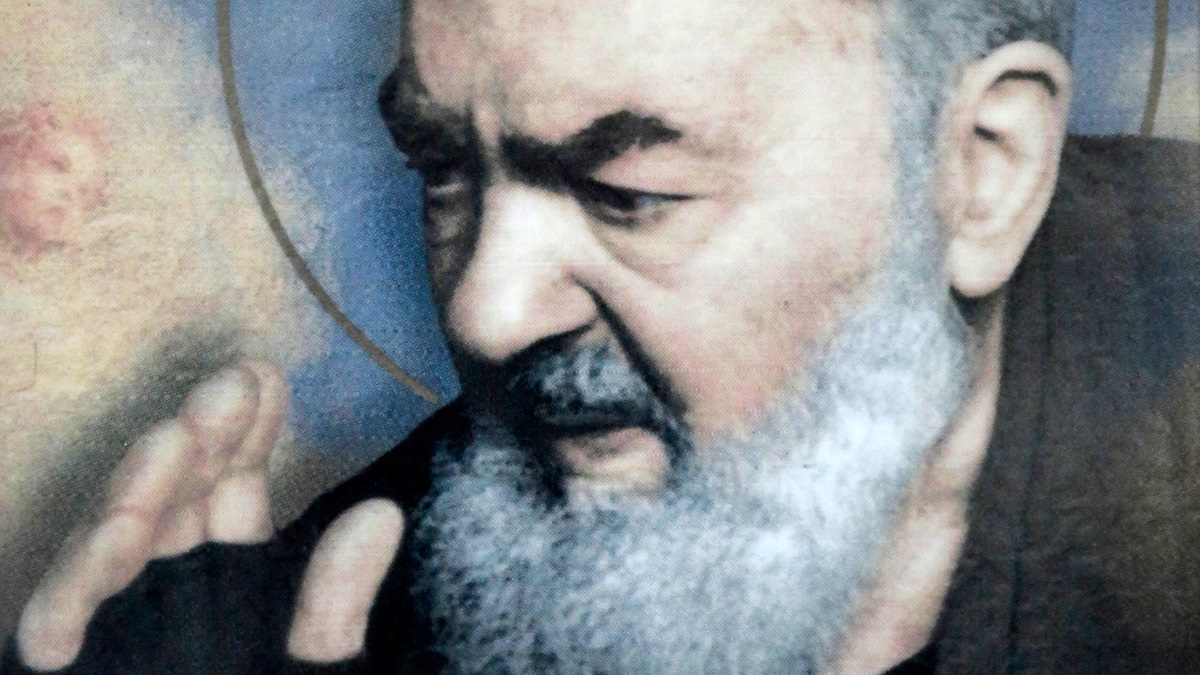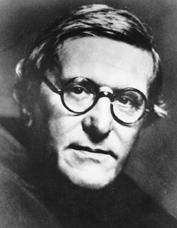From Forums of the Virgin Mary [translation]:
The stigmata, his other gifts, and his pastoral accomplishments drew the waves of persecution he suffered in the monastery, in his order, and by the Vatican.
The evil one preferentially attacks those who are on important missions for God.
This explains why Padre Pio suffered two persecutions within the Church.
The first is linked to its stigmata; it was in the ’30s.
And the second time was in the ’60s, due to the success of his ministry.
The saint took the sanctions with deep obedience.
And finally, he was fully vindicated and canonized in record time.
There is a large consistent bibliography on these events. [You have heard some or many of them; but very probably not all.]
Here we will tell about the persecutions that Padre Pio suffered within his monastery, his order, and the Church, the real causes that justified them, what sanctions he had, and how he was vindicated.

The humble friar had been blessed with supernatural gifts such as reading souls, hearts, and minds, and also phenomenal intercessory powers for the sick for miraculous healing.
But the mistrustful and envious managed to isolate and punish him.
The first persecution against Padre Pio is linked to the experience of the visible stigmata, which he received on September 20, 1918.
The stigmata gave him great fame.
And the provincial of the Capuchins of Foggia, first, and the General Curia of the Capuchins in Rome later, sent famous doctors to study his wounds.
Both doctors gave favorable verdicts.
The fact of possessing the stigmata, and the medical testimony in his favor, increased his fame.
Thousands of people went to see him at San Giovanni Rotondo to kiss his hands, confess to him, or attend his Masses.
Even the newspapers reported that a priest from Pietrelcina had the stigmata of Christ’s passion.
But this also aroused envy.

Father Gemelli was also a Franciscan, an authority on experimental psychology, and a close friend of Pius XI.
Gemelli traveled to San Giovanni Rotondo to see Padre Pio and asked him to show the stigmata. Padre Pio asked him if he had written authorization, which was necessary.
Since Gemelli said no, Pío refused to show it to him.
And Father Gemelli felt his pride was slighted and he left the convent with the idea that the stigmata, which he had not checked, were false.
Then he published an article affirming the falsehood of the stigmata and their neurotic nature.
The Court of the Holy Office, supported by this opinion, issued a decree declaring that there was no evidence that the stigmata were of a supernatural nature.
And between 1923 and 1933, Padre Pio spent ten years isolated from the outside world imposed by the ecclesial authority.
The sanctioning of Padre Pio included the prohibition of receiving visits, and a prohibition of the epistolary correspondence of the faithful with him. [scroll for more:]
Saint Pio could neither confess nor give spiritual direction.
His own confessor was even separated from him
He couldn’t show the sores, talk about them, or allow them to be kissed.

Gemelli’s opinion, wounded in his pride, was not the only wound inflicted on Pio’s reputation, because the Archbishop of Manfredonia, Pasquale Gagliardi accused him of fraud.
Gagliardi was an opportunist of sinful [allegedly homosexual] behavior, who looked with envy at the humble monastery, for its strong pilgrimages and for the volume of alms and donations, which excited his greed.
He told Pius XI “I have seen it myself, I swear, I discovered a vial of acid with which he inflicts wounds and cologne to perfume them.
“Padre Pio is possessed by the devil and the monks of his convent are swindlers.”
Friends of Padre Pio demanded an investigation of Archbishop Gagliardi and his informants.
And so it was discovered that they were frauds. And finally he was removed as archbishop.
However, the Holy Office maintained its pressure on Padre Pio because the opinion of Padre Gemelli still weighed and between 1931 and 1933, Pio was further isolated.
But finally, in 1933, Pius XI sent Monsignor Paretto to obtain first-hand and reliable information on the personality and phenomena surrounding Padre Pio.
His opinion was favorable and in July 1933, by express will of Pius XI, the Holy Office fully rehabilitated Padre Pio.
Almost 30 years will pass until he is persecuted again by the Holy Office, when John XXIII was Pontiff.
And the second persecution came from the Capuchin.
A very divisive issue was the money from alms that had made it possible to erect the hospital, which Padre Pio had founded, the House for the Relief of Suffering.
Hundreds of thousands of dollars were donated for that construction.
And excited by the idea of making quick money, Padre Pio’s superiors wanted to use the donations for other purposes.
And Padre Pio refused because the money did not belong to him.
So they ordered him, out of obedience, to give them the donations from the hospital.
And to their chagrin, Pio refused again.
This earned him their rancor, and in order to find evidence against him, they spied on what was happening in his confessional.
Thus a detailed report on Padre Pio was sent to John XXIII alleging that Padre Pio had sexualized contact with some women going to Confession.
This so-called “second persecution” of Padre Pio happened between 1960 and 1961.
Umberto Terenzi, Roman parish priest of Divino Amor, obtained from the Holy Office the verbal order to investigate.
And he gave rise to his internal persecutors of the order and the monastery, so that they put microphones and a recorder in the place where Padre Pio met with the faithful.
And in a chat with a certain Cleonice Morcaldi, those who listened thought they heard “a kiss.”
The recordings were sent to the Holy Office.
But that angered John XXIII and he ordered them to remove the microphones.
Not only this, but from that moment on he avoided any encounter with Terenzi.
And Carlo Maccari was appointed as apostolic visitor.
In the summer of 1960, Bishop Maccari visited Padre Pio and ended up “proving” the false accusations against Padre Pio.
Padre Pio was prohibited from celebrating weddings and baptisms, only being granted a strict 30-minute slot for Mass, when before the saint would spend up to four hours celebrating Mass on a feast day.
Some individuals were forbidden to go to Confession with him, and when he heard confessions, he only had three minutes for each penitent.
He was not allowed to speak to the women alone.
The monks in the monastery who were his friends were transferred, including some who acted as his nurses, because he was frequently ill.
And especially, Padre Pio had to hand over to his superiors in the order the title of the House for the Relief of Suffering. [scroll for more:]
The most irritating thing is that Padre Pio’s superior, Father Rosario, went beyond the Holy Office.
He put up embarrassing posters telling people not to go near Padre Pio.
He forbade the other friars from showing kindness to Padre Pio, such as helping him up the stairs or bringing him a glass of water when it was extremely hot.
In February 1961, the Dominican Father Paolo Philippe made a one-day apostolic visit.
And he built his report with the rumors he heard in the convent.
He said, “Padre Pio struck me as a man of limited intelligence.
“But very cunning and stubborn, who walks his ways without facing his Superiors head on, but without any will to change.
“He is not and cannot be a saint and not even a worthy priest.”
And I add, “Padre Pio has passed imperceptibly from minor manifestations of affection to increasingly serious acts, even the carnal act.
“And now, after so many years of sacrilegious life, perhaps he doesn’t realize the seriousness of the evil.
“This is the story of all the false mystics who have fallen into eroticism.
“Padre Pio is not just a false mystic, who is aware that his stigmata are not from God.
“He is an unfortunate priest, who takes advantage of his reputation as a saint to deceive his victims.”
In short, the Dominican labeled Pio “the greatest fraud that can be found in the history of the Church.”
But John XXIII understood that the accusations directed at Padre Pio had been artificially concocted.
And he ordered the Holy Office not to increase the sanctions for the stigmatized friar.
And when Paul VI began his Pontificate, things changed radically.

And in 1964 he intervened and ordered that Padre Pio be allowed to practice his ministry “in complete freedom” and not be restricted “like a criminal.”
His claim in 1964 means that Padre Pio had four full years, before his death in 1968, to exercise his ministry and establish his reputation as a saint.
He was not a wild-eyed fanatic as his enemies claimed, not a neurotic, not a crazed bitter rebel, but a pleasant, good-humored, humble, and docile man, a man of prayer and many Divine gifts, who was later canonized in Record time.
Well up to here what we wanted to tell about the persecutions of Padre Pio, which were the result of envy and greed.
It is the mystery of the sufferings through which the great saints habitually pass for their sanctification. [So do we all, in our own way.]
And Forums would like to ask you if you know some more episodes about the persecution that Padre Pio was subjected to or not.
[resources: the best books on Padre Pio]
[Padre Pio’s monastery, church, hospital, and tomb will be visited in Spirit Daily pilgrimage to Italy this September. Join us]
